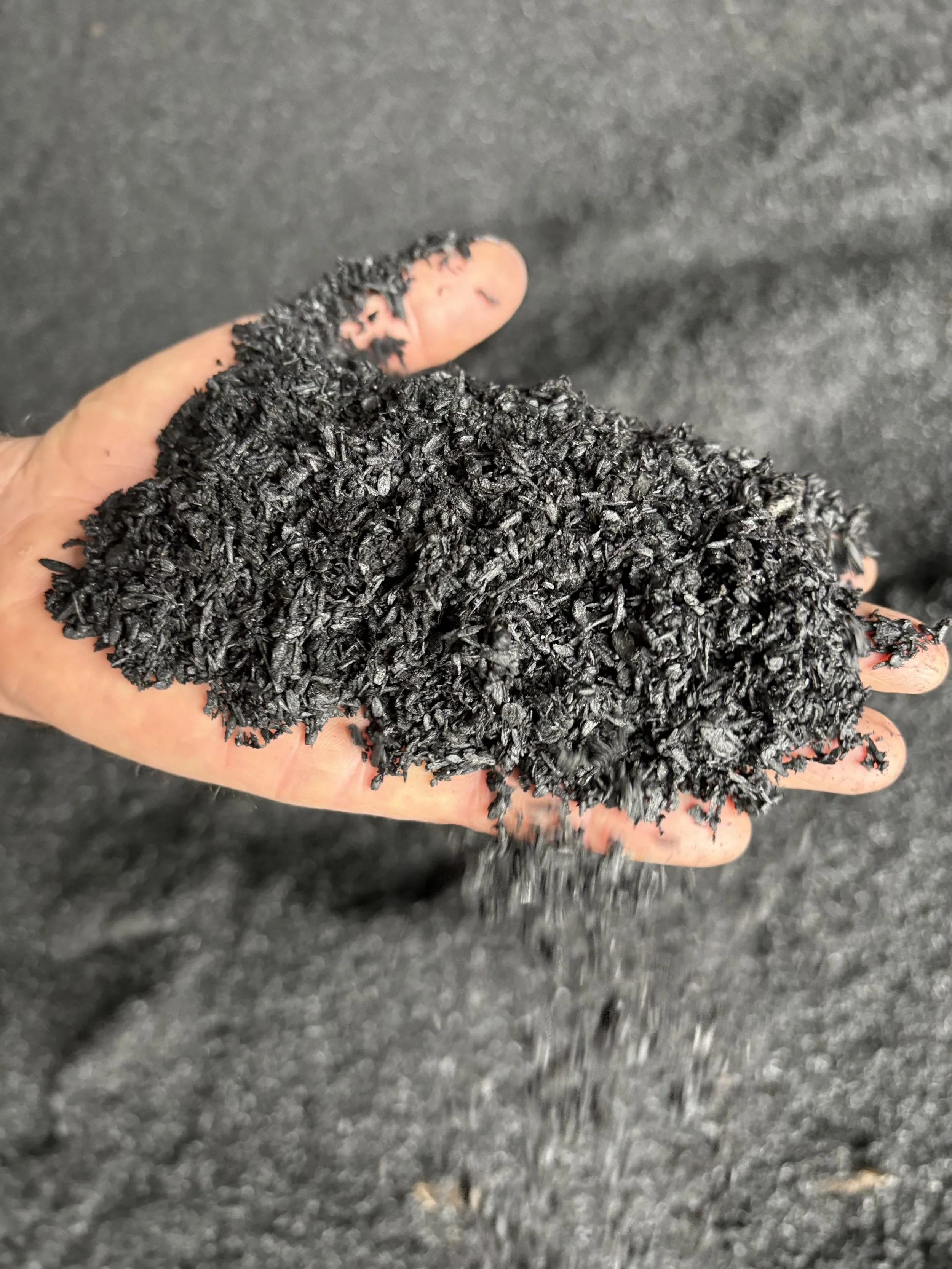At Olympic Biochar, we are passionate about the potential of biochar to improve soil conditions and create a more climate-resilient agriculture.
What is Biochar?
“Biochar is a charcoal-like substance that’s made by burning organic material from agricultural and forestry wastes (also called biomass) in a controlled process called pyrolysis. Although it looks a lot like common charcoal, biochar is produced using a specific process to reduce contamination and safely store carbon. During pyrolysis organic materials, such as wood chips, leaf litter or dead plants, are burned in a container with very little oxygen. As the materials burn, they release little to no contaminating fumes. During the pyrolysis process, the organic material is converted into biochar, a stable form of carbon that can’t easily escape into the atmosphere. The energy or heat created during pyrolysis can be captured and used as a form of clean energy. Biochar is by far more efficient at converting carbon into a stable form and is cleaner than other forms of charcoal.
In terms of physical attributes, biochar is black, highly porous, lightweight, fine-grained and has a large surface area. Approximately 70 percent of its composition is carbon. The remaining percentage consists of nitrogen, hydrogen and oxygen among other elements. Biochar’s chemical composition varies depending on the feedstocks used to make it and methods used to heat it.” —Sourced from regenerationinternational.org
Our Source
Olympic Biochar is a byproduct of a steam combustion boiler at Port Townsend Paper Company, which means that the heat produced in the production of the biochar is used in mill processes, rather than simply being wasted. This is called a "combined heat and biochar" process and is, unfortunately, not how all biochars are produced. Carbon dioxide is released when organic matter is burned for biochar, so unless the generated heat is used to displace combustible fuels, the carbon balance of the whole operation will be far from optimal.
Another advantage of Olympic biochar, of course, is that it is local and created from WA regional forestry by-products and reclaimed construction/demo wood*; transformed through pyrolysis and quenched with water to create a pure, consistent, low-ash content biochar.
*This product has been third-party tested per International Biochar Initiative (IBI) certification standards for heavy metals, toxins, carbon & water content and particle size. Shared by request.
According to the US Biochar Initiative,
“— Because of biochar's physical and chemical nature, it has a unique ability for attracting and holding moisture, nutrients, and agrochemicals even retaining difficult to hold nutrients like nitrogen and phosphorous. Nitrogen tends to run-off regular soils, upsetting ecosystem balance in streams and riparian areas. Biochar also holds gasses; recent research has proven biochar-enriched soils reduce carbon dioxide (CO2) and nitrous oxide (N2O) emissions by 50-80%. N2O is a significant greenhouse gas, 310 times more potent than CO2.”
The unique characteristics of biochar have a proven ability to assist nature in the regeneration of nutrient rich soil by enhancing a healthy soil biome and encouraging microbes, bacteria, and mycelia—while also sequestering carbon from the atmosphere.
We supply locally generated biochar and biochar enhanced compost in bulk loads and in smaller packaging.
Contact Us to request more information or see the ORDER FORM here.

